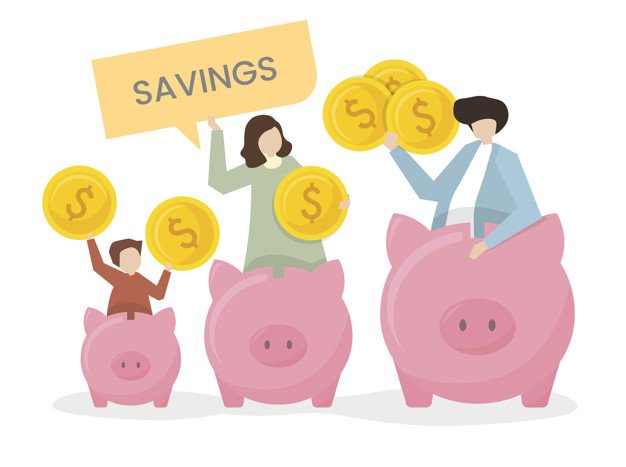Category: Finance
ContentRally is a leading source of reliable news and trending topics on Finance. Get hard-to-find insights and advice on Finance from industry-specific leaders.

Glenn Sandler (CPA) of G.I. Tax Service: What to Do If You Can’t Pay Your Taxes
Things happen, circumstances change, and often, people find themselves unable to pay their taxes. If you find yourself in a similar position, it is important that you understand the gravity of the situation. Continued refusal to pay your taxes could lead the IRS to take it forcibly: by garnishing your wages or putting a lien on your assets. However, according to Glenn Sandler, CPA, founder of G.I. Tax Service, there is no need to panic. If you can’t pay your taxes or you owe an amount in back taxes, you can enter into an agreement with the IRS and leverage one of their several payment options. Here is how to go about it: Ensure that you are in filing/payment compliance: To enter into an agreement with the IRS, you must ensure that all your tax returns are filed. The next step is to keep enough of your wages aside to pay off your taxes for the current year. To do this, you will need to estimate your tax returns for the year and ascertain that the wage percentage that was withheld will suffice. If you don’t know how to file tax returns or make accurate enough estimations, please contact tax professionals that will help you through the process. Review your tax returns: Check your tax returns to ensure that the balance that the IRS expects you to pay is correct. The smart play is to calculate your returns for the years you owe and the 3 years that precede it, i.e., if you owe taxes for a year, review your account for the past 4 years. By doing so, any discrepancy between your calculated returns and your tax balance (according to the IRS) can be remedied. Also, if you incurred any penalties in the past, you can try to get them reduced or removed completely. Enter an agreement with the IRS: Once you have filed your taxes and are back in compliance, and have confirmed that you owe exactly what the IRS says that you do, the next thing to do is enter an agreement with the IRS. The alternatives available include: A brief extension of the payment period. The different installment agreements (monthly payment plans with varying terms and conditions). Postponed payment (known as currently not collectible status) for people in financial hardship. An offer in compromise (OIC); a settlement option that allows taxpayers with special and extenuating circumstances to clear their debt by paying a portion of their total balance. Depending on their individual situations, taxpayers with back taxes are eligible for one of the above. Before deciding on which of them to apply for, evaluate your current assets, calculate how much you can pay per month, and consider the effect of incurring even more interest and penalties. Consult a tax professional: If you don’t know how to do any of the above, your best bet is to reach out to a tax expert at G.I. Tax Service. They can help you file your returns and ensure that you are in compliance, check your tax returns and correct any discrepancies, and apply for one of the IRS’ payments options after considering your financial circumstances. When managed smartly, tax debt does not have to be disruptive. All you have to do is secure a payment plan that works well with your income, and before you know it, the debt is all gone. Read Also: Are Payday Loans Really As Bad As People Say? 7 Simple Tips To Pay Off Your Loans Faster
READ MOREDetails
Millennial Investors Will Drive Bitcoin Price Growth in 2019
Even though the vast majority of price predictions for Bitcoin in 2018 were way off the mark, commentators continue to push their forecasts for Bitcoin in 2019. There is the number of cryptocurrency price predictions out there, and many different factors driving them. Should you listen to them? Always take price predictions with a grain of salt. As an investor, you have to make your own decisions. One of the soundest investment decisions you can make is to never invest money you can’t afford to lose, especially in more speculative investments like cryptocurrency. However, the price gains that you could enjoy are enormous. Millennial Investors Will Drive Bitcoin Price Growth in 2019: How Did Past Predictions Turn Out? At the end of 2017, there was virtually no limit on Bitcoin price predictions. Some pundits claimed that Bitcoin prices would reach $100,000 or higher, and some pretty colorful language has been used to express confidence in Bitcoin going as high half-a-million dollars in 5 years. Unfortunately, past bullish sentiments didn’t come to pass. On the other hand, many are now seeing 2018 as the correction that had to happen for prices could bounce back. With the Nasdaq, the second largest stock exchange in the world, vowing to launch a Bitcoin futures exchange, the cryptocurrency is far from dead. Who’s Driving Bitcoin Investment? The short answer: millennials. Millennial investors know that the factors driving economic growth today aren’t the same as when their parents were saving for their retirements. Millennials want to invest differently than the way their parents have. Millennials are more open than their parents to growing wealth through digital currencies, and it’s through them that products like Bitcoin will reach widespread acceptance as an investment vehicle. 2019 Bitcoin Price Predictions: The real question is, what are the experts predicting for 2019? Depending on who you ask, predictions range from prices hovering near $3,500 to more optimistic predictions that prices will near $10,000 by the end of the year. More optimistic price predictions are grounded in upcoming developments such as the Bakkt futures market and growing interest from institutional investors. Mutual funds getting involved in Bitcoin futures will make a major difference for speculative investors hungry for a new commodity to sink their teeth into. But there are going to be two essential indices that you should keep on eye on: 1) Will cryptocurrencies start to move in different directions? To date, cryptocurrencies have generally moved in tandem, with Bitcoin leading wider market movements. 2) How will stock markets move? There’s a convincing argument to be made that Bitcoin already resembles gold in a number of ways, and gold has a historic pattern of rising prices when stock markets. If the S&P drops, will Bitcoin follow suit? Buy Bitcoin Now: If the 2018 Bitcoin price correction has been good for anything, it’s providing a window of opportunity for new investors. If you want to buy Bitcoin, check out Bitbuy or another cryptocurrency exchange offering low fees and fast ways to buy Bitcoin. A reliable cryptocurrency exchange is your gateway into the world of Bitcoin. If you’re ready to grow your wealth with a new type of commodity, buy Bitcoin today. Read Also: Hiring A Blockchain Developer What To Expect When You Become A Forex Trader
READ MOREDetails
The Importance Of Saving: The Bedrock of a Bright Financial Future
Personal finance goals cannot take off without first putting in place a savings plan. Many people know that it is important to have one and execute it, but for some reason, they still end up not saving. One must be deliberate about it and must also put together a concrete plan which when followed can lead to the achievement of their financial goals. Cost of living is high and there may be times where emergency funds are needed. It is important to note that the savings plan should not feel too constraining or draining. One must balance savings and discretionary funds. So how does one go about creating a savings plan? Here are some considerations: The Importance Of Saving: The Bedrock of a Bright Financial Future: 1. Start by setting a goal: Goals are a major motivating factor where money and saving is concerned. One must identify the end result of their savings. What is the money for? What does the person hope to achieve? This can be a dream holiday, saving for that down payment so one can finally purchase their own home, or even saving for when one retires. Or perhaps, one wishes to go for Lasik surgery and the cost of Lasik in Singapore is not cheap, so they will need time to prepare the funds. Setting a goal drives the saver and also encourages them when they have to delay gratification on other things because achieving the goal becomes the ultimate reward. 2. Separate funds: It is important that savings be put in an account separate from money for day to day expenses. If the money can be in a locked account, this is even better. Unfortunately, life has a way of smelling out “extra” funds, which means that a situation can easily arise which will cause the saver to dip into these funds. Having the money in an account that can’t easily be accessed is thus a great idea. 3. Track expenses and cut back: Personal finance includes tracking one’s expenses so that he or she can determine how they are spending their money, and how much can actually go into savings. Expenses generally fall into 3 categories. Fixed expenses. These include rent or mortgage, loan repayments, insurance premiums and the like. Variable expenses. These may include utility bills, cell phone bills, grocery shopping and the like. Discretionary expenses. Usually, these are expenses that mainly want and not needs. They include money for a cup of java, eating out, clothing, the gym and the like. It is good to make sure that one puts aside some discretionary money to use for enjoyment. Otherwise, a very stringent savings plan will prove impossible to execute and end up abandoned. Once all expenses have been tracked, one can identify areas where spending can be tightened to avail more money for saving. 4. Get rid of all temptation: It is amazing how temptations to spend can crop up out of nowhere. One must mitigate this risk to their savings by coming up with a plan to avoid any temptations. One of the best ways is to spend using cash only. That way, one knows just how much money has left their pocket and is able to limit their spending by stopping once their cash is finished. Of course, this means leaving the house with just the amount that one intends to spend. Another thing to do is to avoid aimlessly walking through shopping malls and to ensure that when going to the supermarket for groceries, they have a complete list that they do not deviate from unless they have carried money from their discretionary allowance. Finding hobbies that do not require spending lots of money can also go a long way in enabling one to save. 5. Make automatic transfer a friend: When it comes to personal finance, one has to execute its savings plan automatically where possible. This means that he or she can have a direct debit set up that pulls out the amount they want to save every month and deposits it in the designated savings account. This way, the saver will be saving first, and then spending based on what is left, instead of working up the willpower to put away money for savings from month to month. From there, it is about adapting to what is left and making sure that the person sticks to their budget. Getting started with saving is the most important thing because from there, one tends to gain the necessary momentum needed. One needs to ensure that the first savings goal is an emergency fund in which there is enough money to take care of 3 to 6 months expenses in the event that they lost their job. This money should be kept in an account where it earns good interest so that it is not lying idle. It is also important that the account be accessible should the need arise. Getting personal finance right is not difficult, but it definitely requires self-discipline. If one can get that right, he or she will be well on his or her way to financial freedom and a brighter future. Read Also: 5 Must-Have Long-Term Goals For A Secure Future How To Select The Best Investment Plan For Your Child?
READ MOREDetails
A Beginner’s Guide In Using MT4 On A Mac
As described by most forex traders, MetaTrader 4 — is by far the top forex trading platform you can use today. The MT4’s trading platform is an all-in-one platform for all of your forex trading needs — from market analysis to all the additional services a forex broker will offer. Although MT4 was initially created for Windows, the application is now also available in Mac. And if you’re wondering what MT4 application to use for your Mac, you can open a meta trader 4 for your mac here. Here’s a beginner’s guide in using the MT4: What’s inside the platform? There are four main panels on the MT4 platform, the navigator, market watch, terminal, and chart panels. Let’s discuss each one and some of their uses. 1. Navigator Panel: This panel enables you to access your trading accounts. This also allows users to create a trial account to test new strategies before trading in the market. Additionally, the navigator panel offers a feature to add various indicators — trends, oscillators, and volumes — on your chart panel. You can even customize your own indicators through MQL4 or MetaQuotes Language 4, the integrated programming language for developing indicators in MT4. 2. Market Watch: This is where you’ll find all the various instruments that are tradable, such as forex pairs, energies, precious metals, and indices; and it also displays the current bid and asking prices alongside its instrument symbol. The market watch panel also allows you to have access to a set of options by clicking a specific instrument symbol. These options are: Chart window - This opens a new chart of your selected instrument. New order - This opens a trade on your selected instrument. Depth of market - This will display the bid and ask prices of a specific instrument. Tick chart - This will display the sales activity of the forex pair. Specification - This will display the contract specifications of a particular instrument — swap rates, contract size, and spreads. 3. Terminal Panel: This panel allows quick access to your trading history and account. The terminal panel displays various tabs along the bottom side of the panel, such as: Trade - Allows you to view your pending orders and open positions. News - This displays the relevant and important trading headlines. Account history - This displays all your executed trades. You can also view your withdrawal, deposits, profits and loss, and credits in this tab. Alerts - This displays the list of alerts and notifications, such as instruments reaching a specified price. Mailbox - This is where you can view the messages sent via this platform. Journal - This tab lets you view your account’s systems messages, such as filled or edited orders, login times, and closed positions. 4. Chart Panel: The chart panel is probably the most recognizable panel of the trading platform, as this panel shows a particular instrument’s price movement. The charts can be viewed as lines, price bars, or candlesticks. And if you’re tracking multiple instruments, this panel can display multiple charts on a single screen. Additionally, this panel also allows you to view the charts in various timeframes, from one minute to one month charts. MetaTrader 4 trading: How to open a currency pair trade: The easiest way to set up a trade in MT4 is to utilize the Order window to place an order on the market by doing these steps: Select the chosen currency pair by clicking the Window tab of your MT4 platform. Select New Window Click New Order on your toolbar, or open the Order window by pressing F9. Enter your chosen trade size in the Volume box. Choose Market Execution in the order type Click sell or buy How to close a trade: When you’re done opening the trade, of course, you’ll eventually need to close the trade. Here’s how to close: Click the Trade tab from Terminal window. Right-click any order you want to close on the Trade tab. Select Close Order Select the Close button on the Order window to close the trade. How to add currency pairs: If there’s a specific currency pair that you’d like to trade, but it’s not visible in the Market Watch window, then follow these steps to add currency pairs: Press CTRL+U to open Symbols In the Symbols window, look for the currency pair you’d like to add. Click the symbol and click Show to add the currency pair. Closing thoughts: Although setting up and placing trades in MT4 is easy, learning the platform’s powerful features and intricacies to fully take advantage of the program can actually take time and effort. May you use this guide as a stepping stone to start trading in the MT4 platform. Read Also: Forex Trading Wisdom: Talk Yourself Out Of Bad Trades What To Expect When You Become A Forex Trader
READ MOREDetails
Forex Trading Wisdom: Talk Yourself Out of Bad Trades
Once you have your trading strategy set up, your charts are in place, you’ve looked over the news and you’re ready to roll into today’s trading, what can you do to keep yourself on the right track? One answer is your broker. A good working relationship with your broker can help you stay in line with your trades. But once in a while, you just get an urge to go above and beyond your own trading style and strategy and throw money into a bad trade. Why would you want to do that and how can you stop yourself? Even though it’s contrary to any strain of trading wisdom, it happens. Here are some of the reasons it might happen to you. Complete Boredom: One of the biggest pitfalls of trading in forex is the boredom that you can experience between trades. As you’ve experienced, it can be painfully boring to sit at your computer waiting for a breakout or for some news event that will trigger some action. Patience is your friend here. Try talking yourself out of making a stupid trade by thinking about what you can do with the money that you’ll most likely be losing. Think of ways you can profit from that money rather than throwing it away on a bad trade that does not fit into your trading style. Since at this point you realize it’s a bad trade, you can think through the consequences and decide against it. Financial Pressure: Many a rotten deal has been the result of some sort of pressure. Pressure to bring in a quick buck due to increasing financial needs is one of those pressures. Keep in mind that trading forex is not like buying a lottery ticket where you throw your money into a cause that is surely going to lose. The odds are against you in either case. This is not a toss the dice game to find out if you win or lose. There is specific logic that goes along with trading to win. You’ve done your homework, developed your strategy and even tested it now. Don’t throw it all to the wind in one dumb trade. Trust yourself, have confidence in your trading strategy and continue to have a winning attitude rather than one of defeat. Goals Out of Reach: If you have set your goals for trading too high, you could be feeling frustrated. Don’t let that frustration lead you to take on a bad trade in hopes of winning. You have the experience under your belt to know that it is very unlikely that you will gain anything from a bad trade. Besides the actual loss in your trading account, it will cost you money in commissions to your broker. Lower your goals so that they are realistic enough that you can meet them, and then gradually increase the bar. In short, trust the hard work you have put into getting this far and don’t throw it away on a bad trade! Read Also: What To Expect When You Become A Forex Trader Top 9 Forex Trading Tips For Beginners That Save You Money
READ MOREDetails
How to Select the Best Investment Plan for Your Child?
As parents, you want many things for your child - happiness, health, and a secure financial future. You also want that your child should excel in his/her career. Just imagine your kiddo becoming a star athlete or a budding biologist or a successful entrepreneur who appears in headlines from time to time. Your joy will know no bounds! However, when you want to provide the best of everything to your child, you will have to move beyond the basic parenting skills and contribute to his/her holistic growth. For that purpose, it is sensible to save money for your child’s future and keep him/her financially secure, even in your absence. A good way to start is to invest in an Online Savings Plan, popularly known as ‘Child Investment Plan’. An online savings plan serves the dual purpose of investment and insurance. Most importantly, it fulfils two major requirements: It secures your child’s future financially It provides financial aid at various stages of your child’s life such as higher education, starting a business, or getting married However, with several child investment plans available in the market today, it can become difficult to choose the plan that best meets your child’s needs. Following tips will help you make an informed decision: Determine the Monetary Value Attached to Your Child’s Dreams As a responsible parent, your first step should be identifying and prioritizing your child’s goals and the monetary value attached to them. The two main goals for which you would need significant financial funding is your child’s education and marriage. As far as education is considered, for the time being, decide your child’s goal on behalf him/her and know for sure when the cash is required. Reach a decision, for instance - "I am saving for my son’s engineering degree in 2025, and I may require 20 lakhs for the same". Along these lines, calculate the required funds while taking into consideration the year of the requirement for the respective milestones. Also, with respect to your child’s education, don’t just consider funds for primary and higher education, but also plan for extracurricular activities. In short, make estimates of the amount you intend to spend on your child’s education or marriage. Doing so will help you choose the premium amount and the policy term for the best child investment plan. Go for Equity-linked Online Saving Plans If you have a higher risk appetite for equities and a considerable investment time frame (more than 10 years), you can consider opting for an online savings plan. It is essentially a unit-linked child investment plan that offers you investment as well as insurance feature in a single product. Further, this plan provides multiple investment options like equity, debt and balanced funds. So, if you have a longer investment timeframe, you can go for equity funds as investing in equities for longer duration gives the best returns. On the other hand, if you have a lower appetite, you can go for an online savings plan that offers a balanced mix of growth and debt funds. Remember that just choosing to invest for your child is not enough. Selecting the right investment plan is most important! Therefore, while making your investment decision consider the amount you can spare for investment, your income, cost of higher education, time in hand, and the level of risk. Look for Premium Waiver Benefit Almost all insurers, including Max Life Insurance, offer child plans with premium waiver benefit as a key feature of the base plan. This benefit acts as the most vital feature in case of demise of the parent. In such a situation, the child plan pays a lump sum amount to the nominee. Further, the insurer waives off all future premium, and the plan continues to be active until the entire policy term. This ensures that the maturity benefit remains intact as planned. Check for Provision of Partial Withdrawals Online saving plans also allow partial withdrawals on fixed intervals. The idea behind such partial withdrawals is to allow parents to meet the financial needs of their kids at the key milestones in their life such as admissions for extracurricular activities, admissions in educational institutions, or marriage. This option is also helpful for meeting unplanned expenses in case of medical emergencies. Other Factors to Consider for Child Investment Planning Start investing early. It will help achieve your investment target easily. Also, ‘Power of Compounding’ will play an important role when it comes to investing for your child’s future Know the different premium payment modes. You can opt to pay premiums on monthly, quarterly, half-yearly or annual basis Invest in a plan that offers a well-balanced mix of equity and debt funds Track your investment at regular intervals and make appropriate changes if required Select a tax-efficient investment option Concluding Today many insurers have come up with attractive child investment plans. However, you need to be judicious about what plan you want to opt for. Also, while making your decision don’t forget to consider criteria like time horizon and age of your child. We hope that this guide will help you choose the right plan for your child and make his or her dreams a reality! Read Also: Investing And Trading 101: Investment Ideas For Newbies How Digital Advisors Have Transformed The Investment Sector Pros And Cons Of Oil And Gas Investment
READ MOREDetails
4 Tips for Not Panicking When You Get a Letter From the IRS
A letter from the IRS may seem serious, but the situation that results in the letter may not always be serious. You may find that you're receiving a notification of a minor error or small sum of money that you owe. Even an audit isn't causing to panic — the IRS may simply need some additional information in your personal files. Follow these tips to handle communications from the IRS in a calm, sensible manner. Read the IRS Document Carefully: Image via Flickr by dvs You should always open and review documents from the IRS as soon as you receive them. The IRS will attempt to connect with you by mail to make initial contact regarding any issues with unpaid tax debt, tax filing errors, tax audits, and other issues. The sooner you address the problem, the easier it will typically be to find a satisfactory resolution. If you ignore letters from the IRS, it is possible for the agency to reach out to you by phone. The IRS recently started working with private debt collection companies to handle unpaid tax debt. Many telephone scams exist as well, and you should be vigilant about confirming any information that you receive by telephone. Keep Your Tax Documents Organized: Ideally, you'll have your tax documents for the last three years safely stored and ready for your review at any time you may need them. These materials include documentation regarding any protections you may enjoy through a third-party tax filing service. Many websites and companies provide audit protection or a guarantee of accuracy, which can give you valuable peace of mind if an audit should arise. If you do not have these documents on hand, you should take the time to gather them as soon as you're informed of any type of dispute or IRS audit. Having these documents provides an important sense of security going forward. Verify the Tax Issue: Before you make arrangements with the IRS to settle a debt, make sure that the amount of the debt is correct. The IRS may occasionally make errors, so it's crucial that you check the numbers for yourself and file a dispute if you believe that the figure is incorrect. Contact the IRS immediately if you believe that the agency is operating with incorrect information. Explore Your Tax Debt Options: If you owe a debt to the IRS, you don't necessarily have to pay the full sum immediately. You can explore several tax debt options. Understanding these options can help you avoid panic, particularly if you're facing a debt too large to pay at once. You may qualify for an offer in compromise, a condition in which you settle your debt with the IRS for a lower sum of money. You can also request that the IRS delay collection or set up a payment plan to handle the debt in a series of installments. If you hear from the IRS, you should take the time to thoroughly review all communications so that you understand what the IRS requests from you. If you need assistance navigating an audit, tax debt, or other situation, don't hesitate to reach out to a professional for help. Read Also: Eight Essential Tips For Getting Out Of Debt What Are The Types Of Debt That Can Be Discharged In Bankruptcy?
READ MOREDetails
Tips for Breaking Into Finance and Banking
Many people with an interest in money find it quite rewarding (and profitable) to pursue a career in finance and banking. But not everyone gets there on the same path. For one thing, there are many careers in the industry, such as management, financial advising, auditing, and lending. So, depending on what field you want to pursue and where you hope to work, your career path may look a lot different than someone else’s. With that in mind, there are a few tips you need to know to help you break into almost any field within this sector. Majors are less important than you think: Many college students get hung up on narrowing down their major in college to match the specific career they currently want. But the truth is that while you do need a degree, the major can vary quite a bit. In fact, many people start out with a major in accounting and end up with economics degree jobs. Or they might start with a major in finance and end up in economics. Some people even break into the field with unrelated degrees, like psychology or communication. The point is that most managers in the money field know that the skills and knowledge you obtain from any area in business can translate to the others. You might start at the bottom: Not all fields are the same, but certain ones (such as banking) rely more on seniority than your level of education. In fact, many people in the banking industry started out years ago with very little education and worked their way up. Other fields also require working your way up, but they may not require you to start in the lowest positions available. Some sectors in finance and banking will allow you to work your way up very quickly or even start out in management or mid-management positions. Just remember to stay humble, learn all you can, and work hard on even the small jobs you’re given. Your resume needs to stand out: While this is true in any industry, employers in the finance and banking industry are looking for specific skills. And depending on where you live and work, your resume could find itself at the bottom of a very big pile. Aside from a simple, professional format, you need to use the right lingo to get your resume seen. Each industry has its own set of particular skill sets that make someone a quality candidate. And banking and finance are no different. In fact, because the applicant pool is so educationally diverse, your skill set may be the only thing that matters. The ability to communicate well, for example, is at the top of the list. Hiring managers also look for analytical ability, problem-solving skills, and capacity for innovation. Networking should be your priority: Networking isn’t just for business professionals looking for more client leads. It’s also one of the most effective ways to land your first job. About 70 percent of job seekers are hired by companies with which they have connections. And networking doesn’t have to be as hard as it sounds: it’s simply connecting with people in the industry. You can do this by reaching out on social media to individuals or groups in the field you want to work in. You can amp up your LinkedIn profile to appear as an active job-seeker in the industry. You can take advantage of all the college events where professionals in your degree field will be meeting up. And you can simply ask people you know about their careers and connections in banking and finance. You’ll be surprised at how willing most people are to help you out. Read Also: 3 Must Know Accounting Tips To Help You Finance Correctly 8 Family Friendly Careers That Offer Great Pay And Work-Life Balance
READ MOREDetails
How Digital Advisors have Transformed the Investment Sector
Technology has undoubtedly made a huge impact on our everyday lives. There are new innovations that are unveiled practically every minute and it can be hard to keep up. The rise of the internet has replaced traditional newspapers and other print media as sources of information. Millions of people now rely on online news sources such as Yahoo and Twitter on getting their news. The transportation sector has also transformed from using the yellow cabs to Uber and Taxify. Purchasing of goods and services is now through electronic payments via credit and debit cards. The financial industry has also been affected by this transformation. The rise of digital advisors has resulted in cheaper and more efficient ways of offering financial advice to investors. These offer automated financial planning with different levels of human engagement. An investor will surely appreciate such engagement. The Difference Between Robo Advisor and Digital Advisors: A robo advisor uses algorithms and model portfolios relying on certain information that has been obtained from the client. While others may find robo advisors attractive due to their low cost, there is minimal human interaction. There is more focus on investment allocation but minimal focus on financial planning. Making life’s big decisions such as buying your next house or paying for college requires a lot of careful planning. In this instance, there is no one to hold your hand as you contemplate about making these changes in our life. A digital advisor is a combination of a traditional financial planner and a robot advisor. This affords an investor the ease and convenience of accessing a personal human advisor. These can be reached via phone or chat. The advice offered by digital advisors goes beyond investment options. Since users have real-time access to an actual financial planner, they can talk to someone about their specific needs and work together to come up with a plan that is based on their current situation. Which One is Right? There are Robo advisors who are fully automated and have low fees. These provide investment planning to investors. On the other hand, digital advisors offer a combination of this automation and a touch of the human element. Financial advice is also provided. It is important for you to know how these function so that you know which one to choose if you are considering these options. Here are some options to choose from who are considered the well-known players in this space: Wealthfront: this automated service has over $1 billion in client assets and thus considered the world’s largest investment service. There is very little human interaction. The first $10,000 in assets management do not attract an advisory fee. Amounts that are higher than this attracts a monthly advisory fee at the rate of 0.25%. The minimum investment amount is $5,000. Betterment: there is also very little human interaction on this service. Just like the previous platform, the process if Betterment begins by clients being asked a series of questions and then an investment plan is recommended. A monthly portfolio fee of 0.35% and this amount decreases the more the balance grows. There is no minimum investment. Learnvest: although this platform does not manage investments, clients can contact a Certified Financial planner whom they can contact by phone or email and ask questions. A %19 monthly fee is charged. Personal capital & Wela: these two digital advisors have very similar offerings. For instance, both offer free financial advice to their users. You can receive advice pertaining to all things finance and be assisted to set up a unique game plan based on your specific situation. Users are also free to use all the financial planning tools available at the site at no extra cost. A management fee of less than 1% is charged to users who are connected to a personalized wealth management advisor. A similar program at Wela ensures that a user is charged only when he decides to become a client. If you have your doubts about putting your money with a fully automated system, why not go for a digital advisor that provides you with unlimited access to a financial planner while at the same time providing online convenience so that you are assured if a partner to guide you in making big decisions in life. How They Work: You do not have to rely on a human to discuss your financial goals and expectations. These interactions go on through a website. You will fill out a questionnaire that helps these sites to assess your current financial situation, risk tolerance and goals. The firms will use this information to develop manage and also suggest an asset allocation. Other firms will operate by investing your money in mutual funds and exchange funds. These are passively managed funds. Other firms will be willing to invest in individual stocks although this does not happen so often. Once your portfolio has been constructed the digital advisor will rebalance it on different situations so that you can maintain your target asset allocation. There are some cases where you will not need to fully rely on a digital platform to offer advice. Some elements of the advisor model are mixed with a human advisor. Therefore instead of relying on your response to the given questionnaire, you will be interviewed over the phone or video. You can also access a human advisor via video conferencing. These websites rely on their own algorithms to determine what would be a good fit for you as asset allocation. Depending on the firm, some will be more or less aggressive in their suggestions. Investors have found these websites to be truly valuable in a fast-paced world where many lack the time or interest to manage their own savings or investments. Advanced technology makes it possible for investors to be comfortable in a web-based relationship which assists them to allocate their asset and online portfolios. It has truly changed the way business is done. Read Also: 5 Must-Have Long-Term Goals For A Secure Future How To Become Financially Stable Before Age 30
READ MOREDetails
Surviving Loss: What to Do With an Estate After You Lose a Loved One
2.4 million funerals take place in the U.S. every year. If you're not in the funeral business, this is a sobering thought. When a parent dies, the grief and pain you are dealing with can often be compounded by financial pressures if you are named as their executor. In a way, it is flattering to be named a parent's executor. It means they trusted your intelligence, patience, and fairness enough to appoint you the overseer of their property after they are gone. In other ways, it is overwhelming to consider the number of debts, unknown assets, and contentious relatives you will need to keep a record of. If you are unsure what to do when a parent dies and you are the executor, take a deep breath, pick up a pen, and begin to approach your responsibilities in an organized, measured way. What to Do When A Parent Dies and You Are the Executor: Right after someone dies, there is usually a period of chaos. During this time, the estate needs to be opened, and the executor is appointed to avoid surprises by debt collectors or the IRS. You may have already been appointed the executor in a will. No one should begin to take or distribute assets yet. As the executor, it is your job to decide whether or not the will should go into probate, which is the official "proving" of the will in court. If the estate is larger, or if there is some disagreement about the will, probate may be necessary before you can begin carrying out your duties as the executor. When you go through probate, you will have to file papers with the local probate court, prove that the will is valid, and present the court with a list of debts and assets. You should also explain how they should be distributed. The probate process could take anywhere from a few months to a year. If your parent set up a living trust, you won't have to go through probate. The person named as the trust's successor will be able to distribute assets according to the will without having to go through the courts. Your overall responsibility as the executor is to make sure that all debts and creditors of the deceased are paid off. Then the rest of their assets can be distributed according to their expressed wishes. An executor is different from a power of attorney, who makes decisions about life-sustaining medical treatments while a loved one is still alive. Once they have passed, the power of attorney is no longer valid. If there are any dependent children or pets, you will need to be certain that guardians are appointed in accordance with the decedent's wishes. These are often complicated things to handle, you might want to enlist the services if an expert right away. Thomas Church, Florida Will Contest Attorney is one of the best Estate Litigation experts in USA. Get the Right Paperwork: Your first duty as the executor is to find your parent's will. It could be filed away with important paperwork or in the hands of their attorney. It is usually necessary to file with a probate court, even if it is determined that probate is not necessary. If there is a will in place, you will receive letters testamentary, which is a legal document authorizing you as the executor to take control over the decedent's estate. If there is no will, you will receive letters of administration. You can then begin your work as an executor. You should also be certain that a pronouncement of death has been filed. This is a letter filled out by a medical professional stating where and when the decedent died. A death certificate should become available after the funeral. You can obtain it from your funeral home, county registrar, or health department. About 10-15 copies should be sufficient to cover your administration needs. You will need the certificate to prove the situation to insurance, credit card, and mortgage companies. If you find you need more copies, they can be obtained from the Department of Vital Records. It is important to begin keeping a list of assets and liabilities before liquidating assets, paying off debts, and distributing funds among beneficiaries. Acquiring credit card statements, mortgage statements, vehicle registrations, a social security card, and copies of insurance policies will also make the process smoother. You should be sure to punch a hole in the decedent's driver's license and passport to help prevent fraud. Giles & Robinson, P.A. explains that an ancillary administration can take six to nine months to finalize. Hire Some Help: An estate attorney, like Verhaeghe Law, can help you avoid mistakes that could cost you money in the long run. A financial consultant can help with asset transfers. An insurance agent can assist with claims forms to help make sure beneficiaries are paid. The costs of the funeral, as well as getting the decedent's affairs in order, are taken from the estate. Don't be afraid to ask for help to make sure the process goes smoothly and does not end up making you liable for problems that may arise. Stop Payments: The decedent's estate is responsible for any debts that arise after death. Heirs and beneficiaries are not responsible, although some feel a sense of moral responsibility to pay them off. You should notify all credit card companies, government agencies, utility companies, and mortgage banks of the death. This will help you to avoid late charges, and accounts will be transferred to decedent status. Doctors and other health professionals who may be owed fees should also be notified. Check the decedent's credit card statements and be certain to cancel any payments with "auto-renewal," such as those for magazine subscriptions, AARP, AAA, and clubs. You may want to wait a month or two before closing the decedent's primary credit card so that you can view the companies that need to be notified. Be certain to contact the three main credit reporting agencies: Equifax, Experian, and Transunion, immediately. They can flag the decedent's account so no one will try to steal their identity. It is also a good idea to check back two months later to be certain no fraud has occurred. You should be sure to notify Social Security so they will stop payments and you will not be responsible to pay back posthumous checks. If your parent was employed at the time of their death, you will need to call their employer. You can find out about any payments due to them, death benefits, life insurance policies, and beneficiary benefits. Pay Off Debts: Keep a list of how much your parent owed to mortgage companies, credit card companies, car payments, etc. You may need to liquidate assets, such as selling houses or cars, to pay off these debts. Check with a CPA to see if your decedent's taxes have been paid. Money from the estate can be used to pay any money owed to the IRS. You will also need to file taxes for your parent from the day of the year they passed until the date of death. If the estate is large, there may also be state or federal estate taxes to pay. Consolidate Assets: The executor should open a separate bank account for ongoing bills, as well as incoming checks. Keep valuables safe in a safety deposit box. You should hire an assessor to see how much their property is worth. It is your duty as the executor to maintain the decedent's property until it is sold or bequeathed to the proper beneficiary. Distribute Assets and Maintain Healthy Communication: After all known debts are paid, you can begin distributing remaining funds to the family as specified in the will. It is important to get and keep a signed receipt from each beneficiary after they are paid. Many arguments and breakdowns during the asset distribution process happen because folks feel that they are being overlooked or marginalized. It is important to let them know what the timeline is so that they will know exactly what is being done with the funds and when they can expect to receive funds that are due them. It is a good idea to take some time before making investments with estate funds, as grieving can be an emotionally overwhelming time for most. Close the Estate: You may be required to file a petition in court before distributing assets and closing the estate. As the executor, your duty is complete. Take Care of Yourself: Losing a parent can be one of the most confusing, disheartening times in an individual's life. If you are overwhelmed by the complications of what to do when a parent dies and you are the executor, be sure to enlist the help of qualified professionals. By keeping detailed records, liquidating assets, paying off debts, and distributing assets, you can be assured that your parent's affairs have been handled properly and you can begin taking steps toward the next chapter in your life. For more lifestyle advice, read our blog today. Read Also: Eight Essential Tips For Getting Out Of Debt 9 Vital Options For When You’re Desperate For Money
READ MOREDetails
Revolving Debt Vs Installment Debt – Which Impacts your Credit Score
This is a question that many Australian citizens are asking, and for good reason, as one’s credit score can seriously hinder a mortgage application or a business startup. Before we go into detail about the impact of these forms of debt on a person’s credit score, let’s define both revolving debt and installment debt. Revolving Debt: With a revolving debt, you borrow against an agreed limit of credit, much like a credit card, and as payments are made every month, the debt revolves and continues until such time as either the lender puts a halt on the line of credit, or borrower settles up and no longer uses the credit facilities. For some people, the credit card loop is extremely difficult to stop, as all a person’s salary goes on the card repayment, thus leaving the person with little choice but to continue to use the card until the next salary date, and the cycle continues. If the debt builds up, compound interest takes hold and the debt grows, with the borrower paying accruing interest over an indefinite period, and rather than continuing to use the line of credit. How Revolving Debt Can Impact Your Credit Score: Lenders look at revolving debt to be a strong indicator of the risk and your credit utilization is calculated by totaling the amount outstanding on all credit cards, against your overall credit milt. If your outgoings are high, there is less chance of obtaining another loan, at least until you have cleared one or two. Installment Debt: This is when you borrow a sum of money with an agreed monthly payment for the duration of the loan agreement, and unlike a credit card, you cannot reborrow, rather you must complete the scheduled payments on time until the loan has been paid off in full. Missing payments will result in extra interest charged and if a person has two or three loans to repay, this could lead to problems in the future, which is when many people look to debt consolidation as a way to clear all outstanding debts, leaving you with a single monthly payment to make. There are online lenders who specialize in bad credit personal loans, especially if the borrower wishes to consolidate their outstanding debts by taking out a debt consolidation package. Installment Debt and your Credit Score: Installment debt is viewed by the lender as less of a risk than revolving debt, mainly because the installment loan is secured against an asset. Another factor that influences the lender is the fact that an installment loan is not ongoing, which means there is less of a risk in defaulting on the loan. If you would like to explore the potential that debt consolidation offers, an online search is all it takes to make contact with the right loan provider who can tailor the package to suit your lifestyle. The expert can inform you of several ways to improve your credit score, thus increasing your chances of approval. Read Also: Debt Consolidation Plans For Your Debt Relief Are Debt Consolidation Loans Recommended For Credit Card Consolidation
READ MOREDetails
What Entrepreneurs With Bad Credit Need to Know Before Applying for a Loan
If you have a dream of starting a new business, don't assume your bad credit will hold you back. There are plenty of loan options to choose from and you can even apply for unsecured business loans with bad credit as well as find alternative ways of raising capital. This brief overview of some of these resources may give you hope for realizing your dream. Take Advantage of Government Programs: While searching for bad credit loans Tampa can open up some doors for you, taking advantage of the government's generosity should be a primary concern. One of the best programs offered by Uncle Sam is the SBA loan. The Small Business Administration partners with lenders who are interested in supporting new startups. The SBA is able to approve entrepreneurs with bad credit because they pledge to cover 90% of a defaulted loan. If the business fails, the lender knows the government will repay the majority of the loss. While the SBA loan is widely recognized, it's not the only government-sponsored loan available. Federal, state, and local governments offer a broad range of grants and loans. Some opportunities target specific groups, such as women and minorities, so a little searching may uncover the right loan for you. A newer option is the microloans, which is a smaller loan with a brief repayment schedule. Microloans are available through government programs and from commercial lenders. Depending on the amount of capital you need to raise for your business, this may be a good option. Microloans were specially designed to cater to prospective entrepreneurs with bad credit. More Funding Options for Entrepreneurs: Outside of government programs and high-interest commercial lending, there are a number of newer options available. One such alternative is crowdfunding. This is an online method of asking others to donate to your business in exchange for small concessions. You choose what you'll offer your investors, but remember that more valuable perks will earn you higher donations. You might also look to business venture capitalists to fund your project. It will require crafting an exciting pitch that will show potential investors what your business can do for them. There is a downside to this option, however. Investors own a stake in the business, so you may lose control over how your business is run. Additionally, the profits you earn won't be solely yours to keep. There are even more borrowing options online. From peer lending to short-term loans, you may find a financial product to suit your needs. Before signing off on one of these loans, be sure to read the fine print. Failure to understand the terms of the loan could end up costing you your business if you're unable to meet your obligations. Before agreeing to a loan that gives you cause for concern, explore all of your other options. One of the best ways to raise capital for your business is to save the money yourself. It may require working a second job in combination with launching your business, but the benefits far outweigh the sacrifices. When your business does succeed and start to grow, it will be the result of your own labors. You won't owe anything to anyone and the profits will be yours to do with as you please. In the end, you may find that you prefer to rebuild your credit first. This is also an option and it's something that may benefit you for years to come. How you proceed is up to you and each option carries its own costs. Whether it's your own time, control of your business, or paying a higher rate of interest, there's no escaping the cost. You'll have to decide for yourself what price you're willing to pay to give your dream life. Read Also: How To Get A Loan On A Day With Bad Credit? 7 Reasons To Be An Entrepreneur In The Best Area: IT
READ MOREDetails















